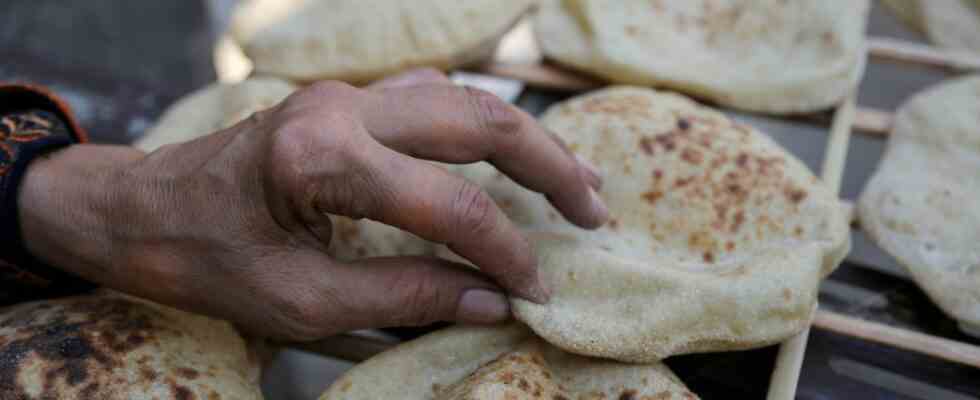Status: 04/16/2022 1:15 p.m
Basic food prices are a hot topic in many parts of Africa. How are governments reacting to the recent wave of inflation, which was also triggered by the Ukraine war?
“Yesterday my mother sent me to the market. But everything was so expensive,” says Ibrahim Barack. “That’s because of Ramadan, the month of fasting, but they say it’s also because of the war in Ukraine. If things go on like this, we’ll have famine here in Niger.” The 15-year-old high school student in Niger even wrote down his comment for the interview, it was so important to him to draw attention to the need in his homeland.
Sharp increase in prices
Hunger has long been there in the Sahel and will soon affect 30 million people: displaced people, victims of drought, poor people who can no longer afford their needs. Schoolchildren in West Africa have long since noticed that the prices for bread, cooking oil and vegetables, which have been rising for years, are threatening to rise further as a result of the war in Ukraine.
Abeer Efeta is spokeswoman for the World Food Program WFP for North Africa, but also for Ukraine. She says that despite long-term supply ties, the markets reacted immediately to the war in Ukraine. “Since the beginning of the Ukraine crisis, we have seen food prices increase. Especially for wheat, it was 25 percent,” she reports.
A hot topic
Similar to fuel prices in Germany, the prices for staple foods are a highly political issue in many parts of Africa. Before Ramadan, even the government of the very poor country of Niger felt compelled to support the purchasing power of its citizens with price caps for imports.
Did it do anything? Mohamed Ama, head of the Consumer Rights Protection Association in Niger, is skeptical. “It’s true that the state has done something, but we think the attempt has failed. There hasn’t been much movement on the market,” he says. “Take sugar, for example: the price hasn’t improved, or other staple foods – nothing has changed on the market.”
Demonstrations against price increases
There can be no question of hunger riots. But both in Niger and in slightly better-off Morocco, there are regular demonstrations against inflation. Lahcen Oulhaj from the Mohamed V University in the capital Rabat expects that the war in Ukraine will lead to further price increases: for wheat and cooking oil, but also in the energy and transport sectors. “Inflation also came from outside in the 1980s, and back then it was offset by compensatory payments for gas or flour,” says Oulhaj. “It should be reissued like in France and the transport sector and taxi drivers et cetera should be given checks for petrol.” Because the transport costs are ultimately reflected in higher food prices.
In addition, says Abeer Efeta of the World Food Program, fertilizer is becoming more expensive. But that will have an impact on future harvests. The states affected by hunger must first be able to afford subsidies. “Subsidizing food in times of economic downturn means that resources go to subsidies, not development,” said Abeer Efeta. It’s a vicious circle. Because hunger harbors political risks. “There will always be concerns that food crises and hunger will increase the risk of political uncertainty and conflict.”
At least the price of rice is still largely stable
But International Crisis Group Sahel expert Richard Moncrieff says the link between bread prices and political infighting is extremely elusive. “The links between inflation and political instability are very difficult to prove,” Moncrieff said. “There is a very high level of resilience in African societies, and the reasons for violence and unrest often do not lie in concerns about bare economic existence.”
Aid organizations warn that half of the emergency supplies in West Africa are not financially secure. In addition, the World Food Program alone is already incurring additional monthly costs of 71 million US dollars for aid and transport services as a result of inflation. The good news is that the price of rice – also a staple food – has remained relatively stable so far.
Power and food – high prices and the consequences for North and West Africa
Stefan Ehlert, ARD Rabat, April 12, 2022 1:46 p.m

